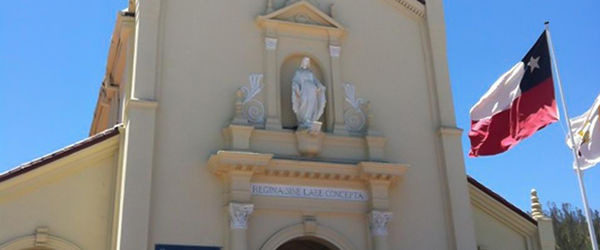Broken and Shared: Food, Dignity and the Poor on Los Angeles’ Skid Row by Jeff Dietrich. Marymount Institute Press, Los Angeles 2011, 418 pages $29.95.Warning: Reading this book may be hazardous, or at least a challenge, to one’s complacent spiritual and routine lifestyle.
“All we have,” says Jesuit Father Daniel Berrigan, in introducing Part One of “Broken and Shared,” “are these stories and each other.” That refrain echoes through the ten searing chapter titles that include 80 reprinted articles from the iconoclastic “Catholic Agitator,” the newspaper Jeff Dietrich helped launched some 40 years ago.
In the prologue, Dietrich recalls his journey in the early 1970s when he became part of the newly founded Los Angeles Catholic Worker: “Ironically, I had found a home in the Church that I had so thoroughly rejected as irrelevant. I had found a place to ground my radical sensibilities as the most important thing for us is to live our lives as if the Gospels were true.”
The 80 articles and commentary reprinted from the Agitator in the book validate the truth of that statement and accomplish in tense, raw writing an acerbic compendium of the truths based on those Gospel values.
“To be a Catholic Worker does not mean that we believe we can transform the poor or the domination system itself,” Dietrich stresses in the opening chapter, “but rather that we believe we can transform ourselves. The most important thing is to live our lives as if the Gospels were true.”
During his 40-year journey of transformation, he was in jail 40 times. In one of his jail letters he says: “If we ever have illusions that love and nonviolence will carry the day, then all we need to do is go to jail to have those illusions shattered.”
In another segment on “Making Peace,” Dietrich describes “this jailhouse tomb with these prisoners who, though they are labeled criminals, are nevertheless men.”
The Jesuit peace activist, Father John Dear, describes Dietrich as “one of the best spiritual writers in the nation, as well as one of our most faithful Christian witnesses.” Evidence of that is found in the section on “Resistance to Empire” as the author affirms his decision to remain in a “Church where it doesn’t look like things are going to get much better. I remain because, despite its sinfulness and brokenness … it is where I first heard the Gospels.”
He also gives special notice to women, notably his wife Catherine Morris and Dorothy Day, co-founder of the Catholic Worker movement. “If it were not for Dorothy Day,” Dietrich explains, “I probably would not be in the Church at all … but because of her I have found a home where I least expected, in the Catholic Church.” In a chapter on “The Church,” he offers further insight on “a movement founded by a woman … and I believe the intent of the Gospel is to liberate all of us, both men and women.”
Of necessity, including a raw coverage of events, several of the articles deal with controversy and scandal in the Church. In the “Church Sex Scandal” article, Dietrich observes: “Like our foundress Dorothy Day, we both love the Church and hate the Church for the scandal that she is. I hope that my frequent criticisms reveal that love … and I am critical in the improbable hope that this scandalous Church might come closer to the vision Jesus had in mind for it.” Other articles echo that theme but also represent truth tinged with charity.
Besides the extensive range of challenging topics covered in the chapter titles, there is a detailed chronology that succinctly lists events from 1970 to 2010 that not only clearly describe dramatic events but also offer insightful conclusions to those significant actions. The eight-page bibliography offers a source for further reading from renowned authors on related topics and challenging references. The 62 illustrations include notable photos and dramatic artwork that reinforce the author’s overall theme that “the Kingdom of God is the Kingdom of the Poor.”
Yet, as uncomfortable as reading these 418 pages can be, Dietrich also stresses: “We like to think of ourselves as a people of hope.” In “Broken and Shared,” he offers that slim expectation for everyone to embrace.
{gallery width=100 height=100}gallery/2012/0323/books/{/gallery}

